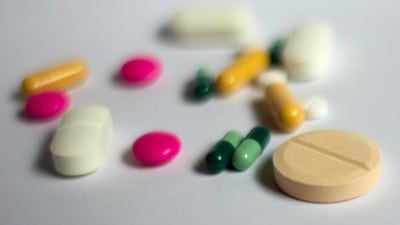Placebos work. I find that amazing. Even a condition as debilitating as clinical depression can be beaten into remission – for a while at least – by an inert sugar pill, especially if we believe that the sugar pill is a sophisticated antidepressant with an unpronounceable name. We are suggestible and gullible and perhaps there is medicinal wisdom in our gullibility.
Antidepressants work but for a long time, there has been a contentious debate about whether they are, in fact, any more efficacious than placebos. Given that depression is presently one of the world’s most important health challenges, this is a critical question.
One of the barriers to resolving the antidepressant versus placebo debate is known as publication bias. In short, research studies that find antidepressants to be better than placebo are more likely to be published. Studies with negative findings might never even be written up, let alone published. Publication bias then, makes it difficult to sum up the relative merit of antidepressants over and above placebo.
A recent study, however, published in the Lancet, presents the most extensive and widespread review on this issue to date. The review looked at studies comparing antidepressants with placebo but more importantly, it also included many unpublished studies. In total, the research team reviewed 522 randomised controlled trials comprising 116,477 adult participants.
_____________________
Read more from Justin Thomas:
We have become the media we used to complain about
Are you being judged when you enter luxury stores?
Mental health issues need prevention and education
_____________________
The headlines are positive. All antidepressants performed better than placebo. Given the amount we spend each year on antidepressants, this is face-saving news. For example, according to the annual report of the National Health Service in the UK, the NHS spent nearly Dh1.4 billion on antidepressants in 2016.
It is worth noting that the placebos mentioned in the Lancet review worked too, just not quite as well as the antidepressants. Arguably, at least part of the antidepressant's power comes from the patient's belief in it. For example, the study found a "novelty effect" – that is, when antidepressants were new in the market, they tended to perform better than they did in later years. When something is new, we tend to have high hopes for it. We have faith in "new", especially new and supposedly improved.
The Lancet article settles the debate at one level. However, there are still many other unresolved considerations. For example, is the difference clinically significant? In other words, antidepressants are better than placebo – but how much better? The Lancet study reports only modest differences between the two. Another huge issue is the very high relapse rate among depressed patients treated with antidepressants; people get well but don't stay well. The Lancet review was limited to only the acute phase, or first eight weeks, of treatment.
Previous research suggests about half of patients who recover from a depressive episode will relapse. Those patients with a history of two or more past episodes have a 70 to 80 per cent chance of further relapse. It’s as if once we have found our way to the dark place we call depression, it is easier to find our way back there on each subsequent visit.
The high rate of relapse in depression has prompted the practice of continuation and maintenance medication. In the case of maintenance medication, this can mean taking antidepressants for up to five years after recovery. Even this is no guarantee against relapse and for many people, the long-term use of antidepressants is just not tolerable, physically or psychologically.
In addition to, or instead of, antidepressants, there is substantial evidence supporting the use of psychological approaches to treat depression and prevent relapse. Mindfulness-based cognitive therapy has proven outstandingly useful in this regard. The challenge facing many nations now, however, is how to make such interventions available.
Pills can be mass-produced in factories; people can't. Well-skilled, psychology-related professionals require high quality education, relevant experience and individual supervision. If we want happier and healthier societies, we need to invest more in people.
Dr Justin Thomas is an associate professor at Zayed University


